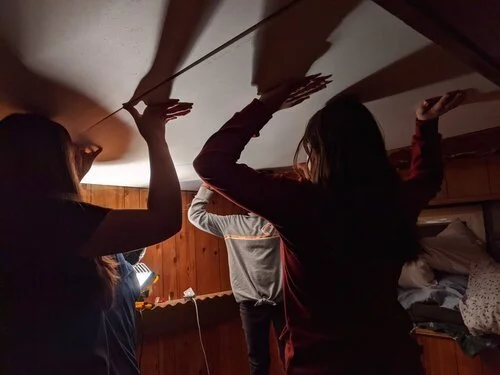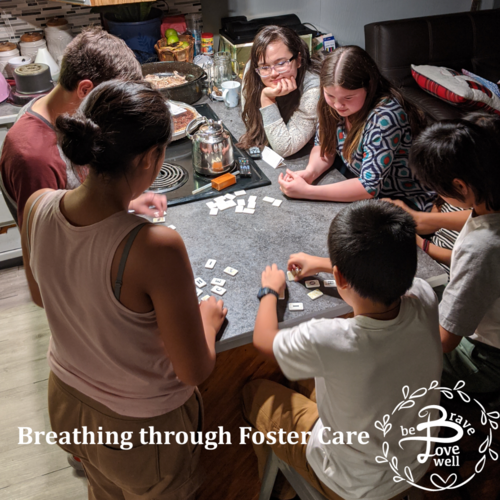FAQs About Becoming a Foster Parent and Adopting From Foster Care
“My help comes from the Lord, Maker of Heaven and Earth.” Psalm 121:2
Preview: This blog covers
Who Can Foster?
What Are the Requirements?
Is Fostering and Adopting through Foster Care Expensive?
Do I Get a Say in Which Kids Come into My Home? I Don’t Think I Could Take a Special Needs Child.
Some Questions I Have Asked Caseworkers When They Call to Ask Me to Take a Child
Try Out Fostering by Doing Respite Care
I Want to Foster and Adopt, but I Couldn’t Survive Falling in Love with a Child and Then Having Them Taken Away from Me!
Adopting a Foster Child
I Don’t Know if I Could Be a Foster Parent
Who Can Foster?
Children need loving adults. You can be single, married, a grandparent, or someone who has always wanted to be a parent someday.
What Are the Requirements?
While these are generally universal guidelines, each state may have slightly different guidelines.
• You must be twenty-one years old or older.
• You must pass a criminal background check. If you had minor offenses with the law years ago, you can be eligible for fostering if you were not convicted of a felony.
• You must have a regular source of income to support your monthly expenses.
• Your home must pass a safety inspection. Exceptions for some issues in the house can be granted if needed. You do not have to own a home to foster, and children do not have to have their own room. I know someone in a studio apartment who fosters.
• You will need to be licensed through the state you live in, which usually requires taking free training classes.
• Your foster care license is suitable for the home you have inspected. If you move to a new home, you will need another inspection and a new permit issued.
Is Fostering and Adopting through Foster Care Expensive?
Dental and medical expenses are paid for through Medicaid. If parents work full-time, the state will provide a stipend that covers childcare costs. If children are brought to your home without clothing, there is often a voucher you can get from the child’s caseworker for apparel.
Some stores offer discounts to foster children. In our state, foster parents can get a clothing voucher for up to $350 and a FosterWear card from their caseworker that offers a ten to fifteen percent discount on clothes at some local stores.
Once you get going with foster care, the modest stipend covers the children’s needs, but honestly, kennels receive more money for a boarded dog each day than foster parents get paid to meet the needs of children dealing with trauma. If I were doing it for money, I would get paid more for opening a daycare in my home, the children would have easier behaviors, and they would go home at night. We foster because we want to help children. Adopting through foster care is usually free. All expenses were paid through the state when we adopted our daughter.
Do I Get a Say in Which Kids Come into My Home? I Don’t Think I Could Take a Special Needs Child.
As a foster parent, you get to state any preferences you have regarding the age, gender, and needs of children you accept into your home.
Our license states that we are licensed for three children from five to eighteen years old, and our preference is five- to ten-year-olds. Some children are considered “special needs” in foster care because they can be harder to place, not because they have special physical or emotional needs. Teenagers, minorities, or sibling groups can be considered special needs in some places or circumstances. We need parents who are willing to take sibling groups so that children do not need to be separated from their siblings at an already traumatic time.
When a worker calls from Social Services, they will ask if you have any openings or if you are taking placements right now.
When they say, “I’m looking for a placement today. Do you have any openings?” I often ask, “How old are they?” Then, if the age and gender fit with the sleeping arrangements we have and our family lifestyle, I say, “Tell me a little bit about the situation.”
It is okay to say no. We do not take babies now that our kids are older, and I am no longer a stay-at-home mom, but workers will call and ask anyway when they see we have an opening. It is essential to welcome children you feel good about and who fit into your family, lifestyle, and tolerance level. You should ask as many questions as you can think of if you are interested in having the child come live with you. You have a choice, and everyone wants the placement to be successful.
Some Questions I Have Asked Caseworkers
• What do you know about the child or children?
• Were they just taken into custody?
• Do the children know why they were removed?
• Have they been in foster care before? How many homes? How long?
• Why didn’t the previous foster home(s) work?
• Do they have any other siblings?
• Does it look like this will be a long-term placement?
• Where does the child go to school? (You have to get them to the school they are currently attending.)
• Do the children have regular appointments such as therapy, counseling, or speech you will be expected to take them to?
• Do you know some things they like?
• When are you hoping to move them?
• Do they have any negative behaviors?
• Are they on any medications? Why are they being taken?
• Do they have an IEP (Individualized Education Program) in school? (This special education plan shows you how to help a child in school and at home since supports and strategies will be listed in the plan.)
Try Out Fostering by Doing Respite Care
You can do respite care if you want to explore foster parenting without initially committing to fostering a child. This is an excellent way to make a difference by supporting full-time foster parents who need a break or have an emergency. You are paid the same daily rate as foster parents. In some states, this is paid directly by the state. Other states require foster parents to take care of these payments on their own out of their monthly stipend. Stipends for foster care and respite care pay for each night a child sleeps at your house.
I don’t mind doing respite once in a while, and this is how I met some lovely children. This sounds bad, but I was surprised by how many healthy kids were in foster care. I don’t remember thinking about it beforehand. I assumed foster kids would be challenging because they were in the system due to parental substance-related abuse. I was surprised by how many were in care because their single parent neglected them due to mental illness, depression, or a low IQ. I had no interest in being a short-term emergency placement home. Children go to these homes right after being removed from a dangerous situation when there isn’t a home readily available for them.
Caseworkers then find an appropriate family member, foster home, or treatment center. Thank God he has people who are passionate about this vital role of helping children when they are initially removed from unhealthy situations and are transitioning to another placement.
For me, the idea of continually revolving change in my family sounds overwhelming and outright scary. We have taken kids upon their initial removal from their parents, though.
I Want to Foster and Adopt, but I Couldn’t Survive Falling in Love with a Child and Then Having Them Taken Away from Me!
All love is laced with pain as we work through conflict and the loss of people we love because of a severed relationship or death. This reality does not stop us from getting married or having children. When adults say, “I could never do foster care. I couldn’t let them go,” I think the idea of a child’s being abused and scared their whole life is more disturbing. It would be tragic for a child to go through childhood without being loved fully by anyone!
Are you willing to pick your way through the wreckage trauma left in a child’s life to offer them love? Dig deep and ask yourself honestly if you could be the friend or loving adult a child needs. Are you brave enough to be the one person who will show a child they are loveable? Would you be willing to model and mentor a child so they can learn healthy boundaries? If you do not find yourself in a place in life where you can foster, you can support a family who is fostering.
If fostering is not something you think you can do, but you want to adopt a foster child, look into a Foster Family Agency, and pursue a child who is already legally free for adoption. This is when parental rights have already been terminated, and no family members want to adopt the child.
Adopting a Foster Child
There is full disclosure with adoption through foster care. This means you are given access to all the records on file on the child you are adopting. This includes any medical evaluations, some information about the birth parents, and the situation surrounding your child’s removal. There will still be parts of the story that are missing, but these records are beneficial in giving you background on a child. When we adopted our daughter, we were not allowed to take anything from the file room or make copies, but we were able to sit and read the records at the Child Services Office and take any notes we needed.
I Don’t Know If I Could Be a Foster Parent
“So do not fear, for I am with you; do not be dismayed, for I am your God. I will strengthen you and help you; I will uphold you with my righteous right hand” (Isaiah 41:10).
• You can do it.
• You are not alone.
• It will be hard.
• It is worth it.
• You can love a child.
• You will make a lasting impact on each child even if you think they are too young to remember. You can make an eternal difference.
Conclusion:
Generally, anyone over 21 can become a foster parent. Check out your state’s requirements in the link below.
Fostering and adopting through foster care is usually free.
You decide which children you welcome into your home. Ask the caseworker about the child they are wanting to place with you. Everyone wants the placement to work out.
Older kids or sibling groups can be considered “special needs” because it is harder to find a home for them.
Try out fostering by doing respite care.
If you are afraid of “losing” a child, you can adopt children whose parents’ rights have already been terminated. See the button below.
If you aren’t sure you can become a foster parent, there are other ways to help. Click the button below for ideas.
Robin LaVonne Hunt and her husband have fostered 42 children and adopted one of their four children. She wrote the book Breathing through Foster Care: A Survival Guide Based on the Reflection of a Foster Mom to encourage parents and those interested in understanding vulnerable children. Some of Robin’s passions include teaching, learning, reading, writing, and flower gardening. She loves to share her story and hear how God has worked through others’ life stories. You can contact her at bebravelovewell@gmail.com.
Additional Resources
You can help!
Please share this blog with your friends and family to help spread the word about the needs of foster children. Even if they don’t foster they might know someone who can help a foster child. Children are waiting.






